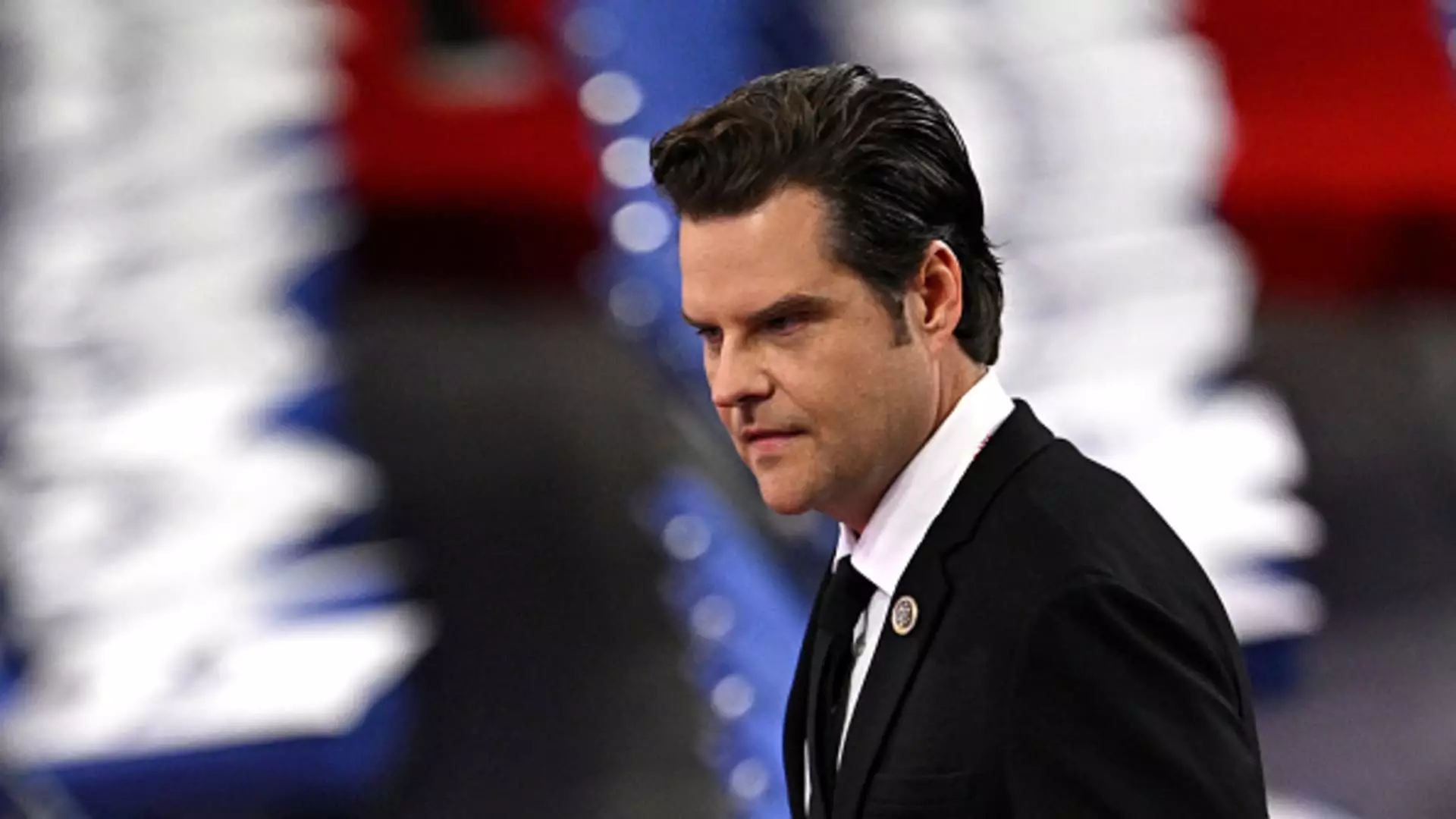The political landscape of the United States is often marred by controversy, and few figures exemplify this better than Matt Gaetz, a Republican representative from Florida. Recently, allegations surfaced that threaten to compromise his anticipated position as Attorney General under President-elect Donald Trump. These developments have triggered a flurry of reactions within political circles, particularly among party members, as scrutiny intensifies around his conduct while in office.
Serious Allegations: The Testimony That Shook Congress
The allegations against Gaetz are serious. According to the attorney representing an anonymous woman, she testified before the House Ethics Committee that she witnessed Gaetz engaged in sexual activity with a minor during a 2017 house party in Orlando. This claim is alarming, especially considering Gaetz’s impending nomination for a critical legal position. The gravity of such accusations raises questions about his fitness to serve as the head of the Department of Justice—an office that oversees law enforcement across the nation.
Gaetz, who resigned from Congress in the wake of these allegations, has vehemently denied any wrongdoing. His lawyer has made a pointed statement, highlighting that the Department of Justice, under Merrick Garland, conducted an investigation but did not charge Gaetz with any crimes. This defense suggests that those accusing Gaetz must provide substantial evidence to support their claims if they hope to sway public and political opinion.
The implications of Gaetz’s situation extend beyond personal reputation. This controversy has shaken the foundations of Republican unity, with several party members calling for transparency regarding the Ethics Committee’s investigation into Gaetz. As public trust in politicians continues to erode, the pressure is mounting for lawmakers to exhibit integrity and accountability in their actions.
Republican House Speaker Mike Johnson has voiced concerns over releasing the Ethics Committee’s report, arguing that doing so would set a dangerous precedent. His remarks underscore the delicate balance that party leadership must maintain as they navigate the turbulent waters of public perception and internal loyalty. There is an undeniable tension between wanting to protect the party’s image while also addressing potential misconduct.
The House Ethics Committee is a bipartisan body, a fact that lends credibility to its functions as it investigates accusations against members. The recent query into Gaetz’s behavior marks a significant chapter in the committee’s history, particularly as it attempts to maintain integrity in an era where allegations can undermine the very institutions of governance.
Initially, the investigation was paused due to the DOJ’s involvement but resumed after the agency withdrew its request for deferral. This shift reinstated inquiries into Gaetz’s conduct, demonstrating the ongoing commitment to scrutinizing potentially illicit behavior among members of Congress. The decisions made by the committee could have long-lasting effects, not only on Gaetz but also on public perceptions of congressional accountability.
Despite the burgeoning controversy, the Senate is still expected to vote on Gaetz’s nomination for Attorney General. This situation presents an opportunity for Trump to consider a recess appointment should the nomination stall. A recess appointment allows the president to bypass the Senate confirmation process, a tactic that could shield Gaetz from immediate scrutiny while solidifying Trump’s influence in his administration.
Should Gaetz assume the role of Attorney General, the implications would be profound. He would not only oversee federal law enforcement but also be responsible for ensuring that justice is applied evenly. The possibility of allegations against him lingering in the public eye could undermine the credibility of his office and hamper his ability to enforce laws fairly.
The situation surrounding Matt Gaetz serves as a critical reminder of the fraught interplay between politics and law. Allegations of this nature pose a significant threat to the integrity of political institutions, raising timely questions about accountability and ethics in governance. As investigations continue and political maneuvers unfold, the American public will be watching closely, eager to understand whether justice can prevail in a system often beleaguered by power struggles.


Leave a Reply